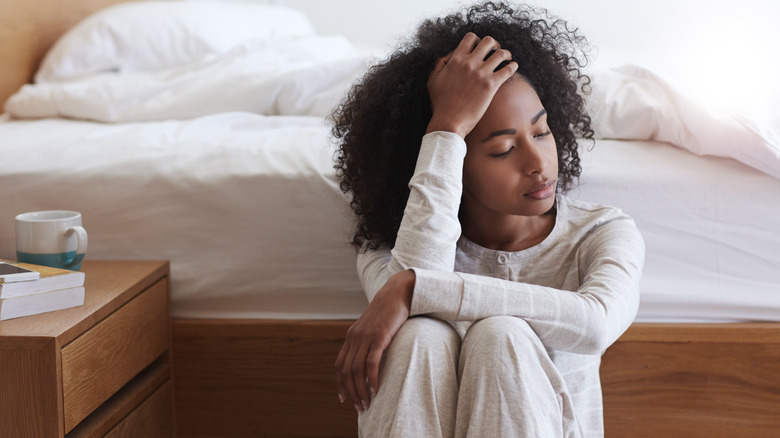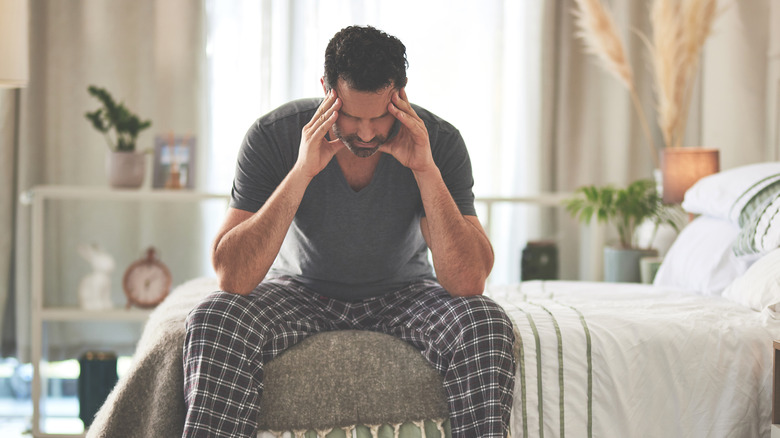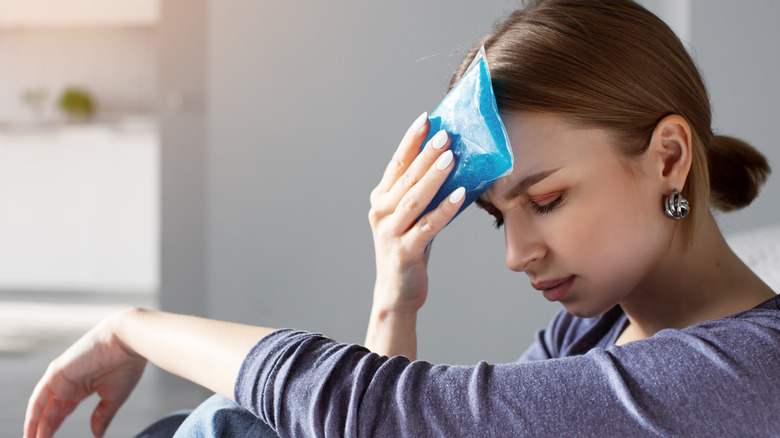What It Means When You Wake Up With A Migraine
When your alarm goes off in the morning and you feel a throbbing in your head, you probably want to bury your head back into the pillow to try to sleep it off. You look back from the previous day to see what might have triggered your migraine. You avoided food triggers, you didn't have a sip of alcohol the night before, and the weather hasn't changed enough to spur your migraine. Besides, you've been asleep for the past several hours, so you know nothing happened to cause a migraine while you were getting your recommended REM cycles.
The American Migraine Foundation says that migraines are more common in the morning because many pain medications wear off through the night. It's also possible that the migraine could have begun while you were still asleep. Your morning migraine could be linked to a few factors, including lack of sleep or dysregulated hormone levels.
Possible causes of your morning migraine
Migraines can occur in the morning because of a lack of sleep, too much sleep, or a shift in your normal sleeping patterns, according to Migraine Trust. Your body becomes overwhelmed trying to compensate for the lack of balance in your sleep. You're also up to eight times more likely to have a sleep disorder if you also suffer from migraines, according to the American Migraine Foundation. Your brain works to shuttle metabolic waste during sleep, but a lack of sleep means this waste doesn't clear from your brain. This could also be triggering your morning migraine, according to Cleveland Clinic.
Morning migraines could also be caused by fluctuations in your hormones, according to Medical News Today. Your body produces less pain-relieving endorphins during the early morning, which could make you feel the pain of a migraine when you wake up. Meanwhile, you also produce more migraine-triggering epinephrine. Other hormones that fluctuate, such as estrogen, could factor into waking up with a migraine.
Other causes for morning migraines
If your migraine also comes with dry mouth, dizziness, or confusion, dehydration might be causing your migraine. Try to stay hydrated throughout the day so you don't wake up with a headache. Withdrawal from caffeine or your medications might have your head throbbing in the morning. While moderate use of caffeine can ease a migraine, consuming too much can have your body craving it the next day. Overusing medications such as OTC pain relievers might get your body stuck in a cycle of needing pain medications more often (via Cleveland Clinic).
If you find yourself waking up with a migraine, using a compress on your head and neck can ease some of the pain. Sometimes a bath or a shower can soothe a migraine. Some medications can help treat migraines such as those for blood pressure, seizure, and depression. See a doctor if your migraine is abrupt, follows a head injury, or gets worse with sudden movement. Neurological symptoms such as weakness, vision changes, or difficulty speaking are also indications to see a doctor.



